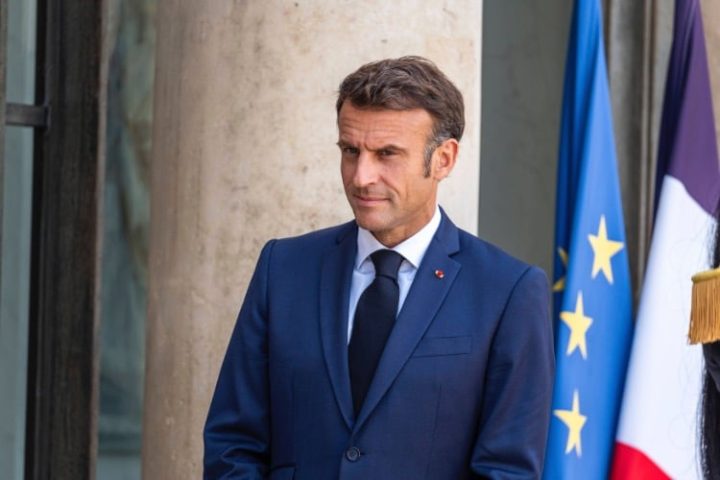
Emphasizing the need for global cooperation to fight so-called climate change, French President Emmanuel Macron last week suggested that some sort of global tax system could be used to finance efforts to mitigate global warming and address global poverty.
The French president suggested that the Paris-based Organisation for Economic Cooperation and Development (OECD) might be used to oversee the negotiation process between nations and multinational corporations to create the new global climate tax.
“I’m in favor of an international taxation to finance efforts that we have to make to fight poverty and in terms of climate [action],” Macron said.
Like a good globalist, Macron suggested that climate change was just too big a problem to attack in a piecemeal fashion.
“It doesn’t work when you do it alone, the [financial] flows go elsewhere,” Macron said.
Macron lauded his own nation’s commitment to taxes for climate change and suggested that the entire world follows France’s lead.
“France already has in place two types of taxes that have been suggested: one on plane tickets, another on financial transactions,” Macron said. The French president added that he was ready to “make others follow us and mobilize” to address the climate issue.
“There has been a great deal of discussion on the idea of international taxation, over and above what countries and institutions are doing. Whether it’s on financial transactions, maritime transport or certain other models, it will only work if it’s truly international, and so it presupposes an agreement, as we’ve been able to do on international taxation,” the French leader said.
France has also acted to ban short haul-flights in the country, a move that even climate alarmists say is “symbolic” at best.
In September of last year, UN Secretary General António Guterres demanded similar global taxes in order to punish the fossil fuel industry.
“The fossil fuel industry is feasting on hundreds of billions of dollars in subsidies and windfall profits while household budgets shrink and our planet burns,” Guterres said at the UN. “Today, I am calling on all developed economies to tax the windfall profits of fossil fuel companies. Those funds should be redirected in two ways: to countries suffering loss and damage caused by the climate crisis; and to people struggling with rising food and energy prices.”
Macron may even be interested in making global climate tax overtures to the so-called BRICS (Brazil, Russia, India, China, South Africa) nations, urging South African President Cyril Ramaphosa to invite him to an upcoming meeting of the nations set for Pretoria in August.
Last year, France and several other European nations experienced severe energy shortages and other fiscal troubles as the continent insists on transitioning away from fossil fuels, which climate alarmists claim are leading to out-of-control global warming, to unreliable alternatives such as solar and wind.
Macron surmised that his nation was experiencing the “end of abundance.”
“I believe that what we are experiencing is of the order of a great shift or a great upheaval,” Macron reportedly said. “Basically, we are living through the end of abundance, that of costless liquidity — we will have to draw the economic consequences — that of products and technologies that seemed perpetually available to us, the break in value chains.”
Macron even predicted how the nation would react to that “end of abundance.”
“Faced with this great shift, our fellow citizens may react with great anxiety,” Macron said.
Now Macron wants to make such policies global so that the entire world can share that unnecessary anxiety.
Meanwhile, Macron’s own nation has been far from completely stable since his reelection last year. In addition to lingering troubles with his draconian Covid-19 restrictions, many in the nation are unhappy with pension reforms that Macron pushed through with his controversial use of Article 49.3 of the French Constitution, which allowed him to bypass France’s National Assembly to raise the French retirement age from 62 to 64. The controversial rise in retirement ages led to months-long strikes and street protests.
The thing with such “global” initiatives that Macron is pushing is that some countries are always asked to pay more than others. What exactly would America’s share of this new global tax on climate be? Would the largest polluters (such as China and India) be asked to pay more because of their outsized role in greenhouse-gas emissions?
Or, as usual, would the United States be expected to pay a lion’s share of the ridiculous new tax?
Perhaps the French president should see to the problems in his own nation before foisting his oppressive climate agenda on the entire world.




